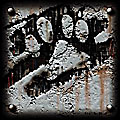|
|
|
 |
||
|
Menu Links and Webrings Article.1 Article.2 Article.3 Article.4 Article.5 Article.6 Article.7 Article.8 Article.9 Article.10 Article.11 Downloads Page Updates |
Article.1 7-1-99Adding Flavor to CombatThis file was made to give you some ideas on how to run anything from a fast-paced skirmish to an epic battle. There are only a few real rules to remember:
This first rule states that the players and not the enemies are the center of the story. The players should not die in skirmishes unless they all took little in the arts of combat. If that was the case, then you probably should tone down the combat a bit. Also allow enemies to die. Somtimes in combat it becomes you vs. them, this will destroy combat when all the opponents seem to be overmatched. There is a downside to makeing weak enemies though. The players will become overconfident and also find little satisfaction as overly sucessful combat goes on. You should generally decide what type of opponent and battle you want to create and then compare this to the players and how much damage you estimate it will do. The setting can be a hazzardous place and should be a villian in itself. Always open a combat scene with a vivid description of a scene which has at least a few dangers. Also don't make all the dangers obvious, such as the obvious long fall off the roof of a skyscraper. Dangers can be hidden anywhere, and also they don't have to cause damage. They can be debilerating, slowing down the players, such as doorways(crinos will have to rip the doorway apart or switch forms). Most areas also will have some type of cover to hide in... Weather is commenly underillustrated, rarely does fighting occure on rainny days, stormy days, or in heavy fog. Snow and ice are really dangerous when used right, expecially if the ice is over a pond. Players will often judge an enemy by what they already know about other enenmies. This is a bad habbit and it can be dangerous to them. They could see a creature and overestimate or underestimate it. Also they could see just the type of battle it is, and underestimate it. An skirmish may quickly turn to ambush, and if a major villian is summoned, into an epic battle. Players have a way of ruining your plans, so be prepared to change them if anythng goes wrong. If you must, cheat on some dice rolls. This can work both ways, you could cheat rolls for and against your creatures. This rules states that you should not give out excessive treasure or leads. Only give what the players should be able to find. Combat has only a few fun emotions: Challenge and Power. Challenge is by far the funnest. The player fights in combat becuase he has to, and because if he doesn't he will die. This type of combat the player plays to see who going to win. Stretching a few dice rolls at the beginning of combat will result in this. Power is another commenly negitive emotion where the players are almost as concerned with game systems as with the actual combat. Enemy Divination. The enemy should not be all knowing and have a mass contingency against the players every plan. Always remember to keep things at least semi-feasible. | |

©1999 White Wolf Publishing Inc. All Rights Reserved |
||